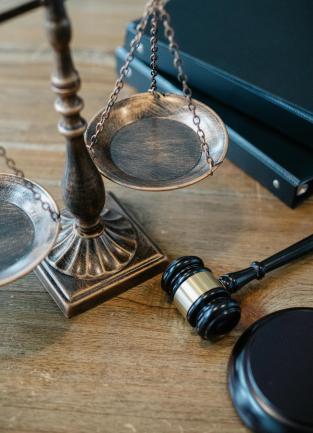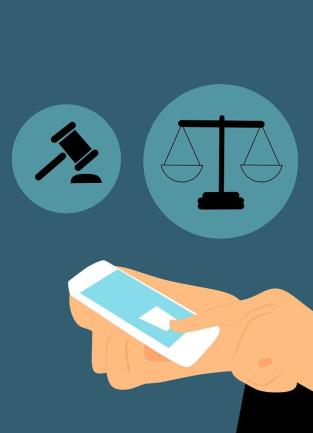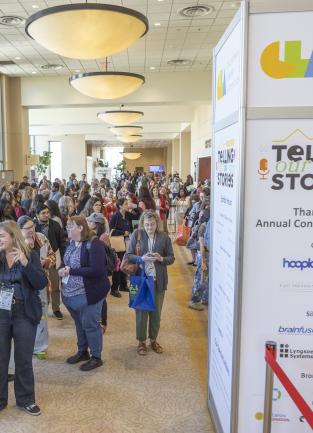Law Librarian Insights: Google First, Use Booleans Later

Fri, 18/07/2025 - 05:00
As a new law librarian, I’m constantly helping research unfamiliar topics with patrons. Just today, a question involved finding “executor of estate papers” to authorize the release of funds from a deceased decedent’s financial institution. Unfortunately, searching the words and phrases in LexisNexis and Westlaw brought up nothing of use. In fact, the results were overwhelming. Random cases, law review articles from 1939, and California statutes clogged my screen. Curiously, though, typing the same search in Google brought up targeted articles and webpages discussing the probate process, letters of administration, letters of testamentary, and other documents that might be relevant. For instance, it led to the discovery of judicial council form DE-150, which ended up being a good starting point for the patron's research.
Many times, visitors come in with broad and seemingly complex questions because the words they and I use often don’t line up with the words that attorneys and courts use. And because they don’t use them, neither do many of our library resources. This quickly leads to dead ends and feelings of helplessness. If I don’t immediately know how to word a search or understand a topic, I find it worthwhile to take a step back from the books and databases.
Technically research can start from anywhere, but the best thing I can recommend is to start with broad searches on Google, Bing, DuckDuckGo, or another search engine first to build up some foundational knowledge and vocabulary. Depending on what you’re trying to find, everything you need might already be publicly available. If it’s not, you’ll be better prepared to use the books and databases that do have the answer.
Internet Research
The main point of internet legal research is to build up the vocabulary and background knowledge I need to sufficiently articulate relevant questions and find more sources. For anyone going to court, there’s typically a need for more sophisticated and in-depth resources like legal databases, encyclopedias, or practice guides. Unfortunately, the specialized language and information architecture of the legal field, though extremely beneficial to practitioners and researchers for quickly sorting through the chaos, instead act as access barriers to outsiders and pro se litigants. This can be said of any specialized field, in which accepted practices, jargon, and methodologies are almost unwelcoming to those without formal training. Despite advances in natural language searching capabilities in databases and plain language writing in the legal profession, it’s still difficult to dive into legal research without preparation. That’s why I typically find it beneficial to berry pick pieces of information from the internet to better familiarize myself with a subject before diving deep.
When using the internet, these are things I record and write down:
- Key words, concepts, and definitions
- Synonyms and related terms
- Primary and secondary source citations
- Any additional questions that come up after viewing any resources
On the internet, it’s more likely than not that information is going to be incomplete and scattered. Before accepting what one source says, a good strategy is to look in different places and to add everything together. For example:
Explore Forums and Answer Sites with Caution
Community knowledge is a form of information that can be very useful and shouldn’t be discounted just because it may be more informal. Be warned, however, that the trustworthiness of the information you are finding can vary drastically. Usually threads on sites like Quora, Reddit, Avvo, etc. are quick answers without much explanation or any citations, so their usefulness can be limited because it’s hard to expand a search from them. What they may do, however, is help brainstorm keywords and research ideas.
If you are looking for advice, it’s best to directly talk to a professional from that area of expertise. Law libraries (ours included) tend to have guides on local legal aid and tools to find lawyers. The source of information matters just as much as the information itself. This leads to my next point:
Continuously vet the reliability and usefulness of resources
Authority, verifiability, and author intention are points I keep in mind when researching. Resources like government websites, articles from nonprofits, information from legal publishers, and content from accredited universities are what I gravitate towards because they tend to:
- Explain a topic
- Have an educational/informational goal
- Contain keywords legal professionals use that I can incorporate in future research
- Cite to more resources that back up what they say
Of course, there are other great resources that don’t come from these types of organizations. Things like law firm blogs, YouTube videos, and news articles can have useful information as well. They just require a little more caution and attention to detail. Good vetting questions I ask are:
- “Can I verify this person/organization’s expertise and credentials?”
- “Are they citing to the sources that inform the content I’m reading?”
- “What is the reason this content is being created?”
- “How does this relate to my topic?”
These questions are what help me determine the reliability of a source and its usefulness. If an article from a practicing attorney cites where the information comes from and is meant to educate a reader, it’s more worthwhile for a researcher like me. Likewise, if a source doesn’t allow me to track who wrote it or where its information comes from, I’m just a little more skeptical of it. I'll take what I can from it, but I won't necessarily end my research with it. Here are a few websites I like to turn to:
Recommended Websites for Research
In addition to these resources, our library has a list of free legal websites that’s constantly being added to. Another great book to look at if you’re in our main branch is Jason Murray’s The Legal List: Research on the Internet, which is a comprehensive directory of internet resources that assist in legal research across the world. The author himself is an academic law librarian and associate professor of law.
This is the official court self-help website for California. To make the law more accessible to everyone, the courts created self-help material to help brief people on common legal issues like the divorce process, serving someone, responding to a lawsuit, and more. If someone is served papers, more likely than not their first stop should be here.
Every county in California has additional resources that their self-help centers have made as well. For example, the Riverside Self-Help Centers have form packets prepared for certain legal processes. Other counties have developed similar resources and explanation guides.
When you type in a legal question into a search engine, this is a website that will most definitely pop up. Their legal articles are informative and can be useful in orienting yourself on a given topic.
Cornell Law School dedicated efforts to publish about various areas of law online for free. The WEX Legal Dictionary and Encyclopedia help to define legal terminology and give a solid understanding of what is meant by a specific term, phrase, or concept. It also does a great job at guiding readers to related terms and concepts.
Nolo Press is a publishing company that is known for creating easy to understand guides for things like divorce, probate, U.S. citizenship, and other topics. The website takes legal terminology/concepts and distills them into digestible articles. Like Cornell, but sometimes easier to read for people who don’t have a background in law (like me). It’s precisely why their books are also some of the things I point patrons to the most if they’re just starting their research.
Fun fact: So long as you’re a Riverside County resident, you can read these books at home for free from our EBSCOHost database subscription. Contact us for more information.
- Trellis (Motions and Issues)
Trellis is one of the library’s databases we have access to, but their website and some of their content is still freely available online. If I get a question about a specific motion (aka the formal, written way to ask a court to do something), I go here for an explanation of what that motion is used for and what goes into drafting it. The Trellis database itself is great if I want to see actual motions or court documents that were filed, which oftentimes get asked for by patrons to use as examples. Just know that the quality will drastically vary from document to document. Other legal topics are explored here, too, like the concept of punitive/exemplary damages in California.
- Other Law Library Websites
Every county in California has a law library. Similarly, every California court system has its own self-help services. We all have a different focus or specialty depending on our community and available resources. It can be worth visiting other library websites to see what type of resources they’re creating. For instance, our library has research guides that recommend various books, articles, and other information sources for specific topics we research regularly. Sacramento County Law Library, on the other hand, has self-help videos and practical articles that are helpful when drafting specific documents.
Final Note
The backbone of good research is preparation and question refinement. The internet is arguably the best place to start both processes because of its accessibility. At the beginning, it's not necessarily always about instantly walking away with a complete answer. More often than not, it's about taking extra time figuring out how to ask the same question in better ways, which eventually leads to the next piece of the puzzle. Armed with some keywords, background knowledge, and pointed questions, you’ll be able to better approach the deeper research that needs to be done at the library and fully use the resources we have. Once you’re ready, check out some of our handy research guides and video tutorials to help you out.
Written by James Phaphone, Law Librarian











